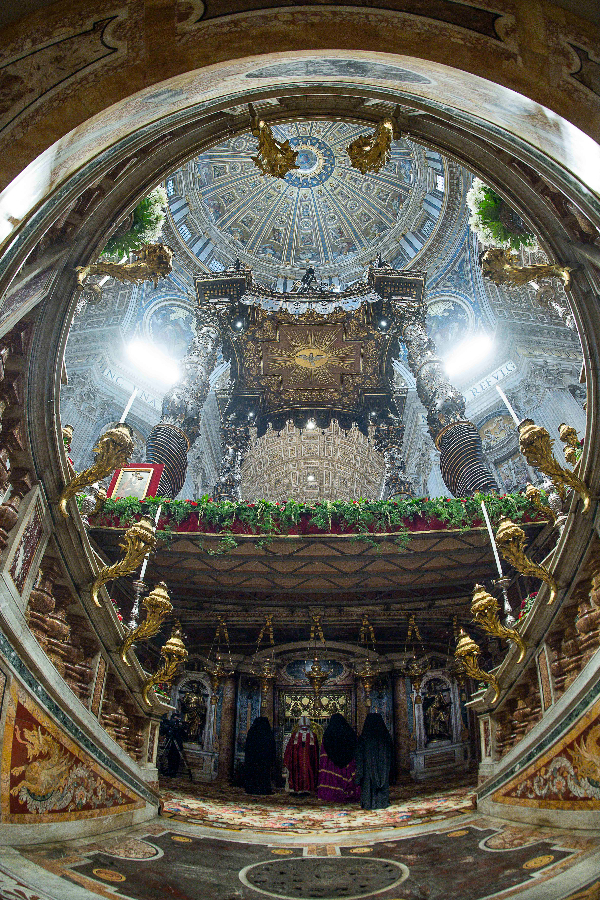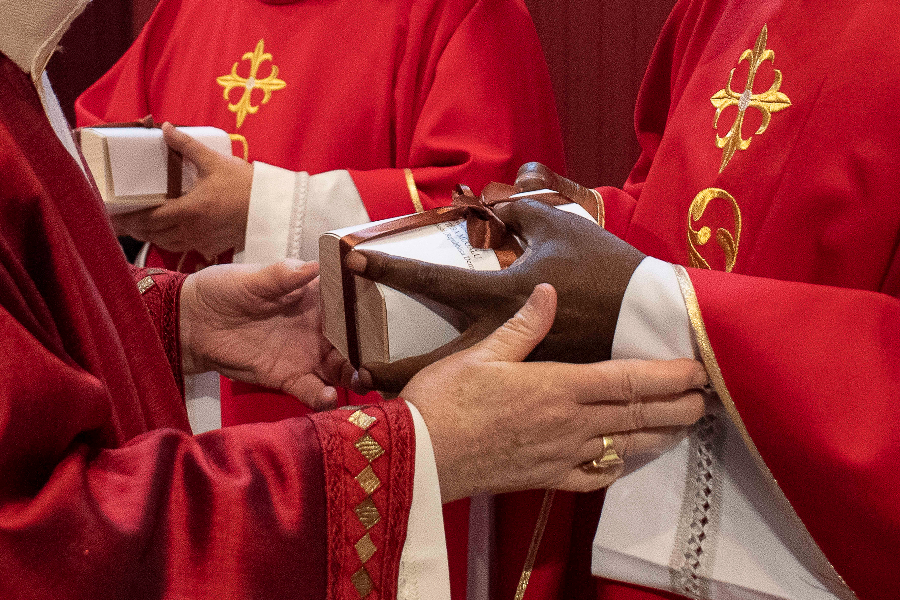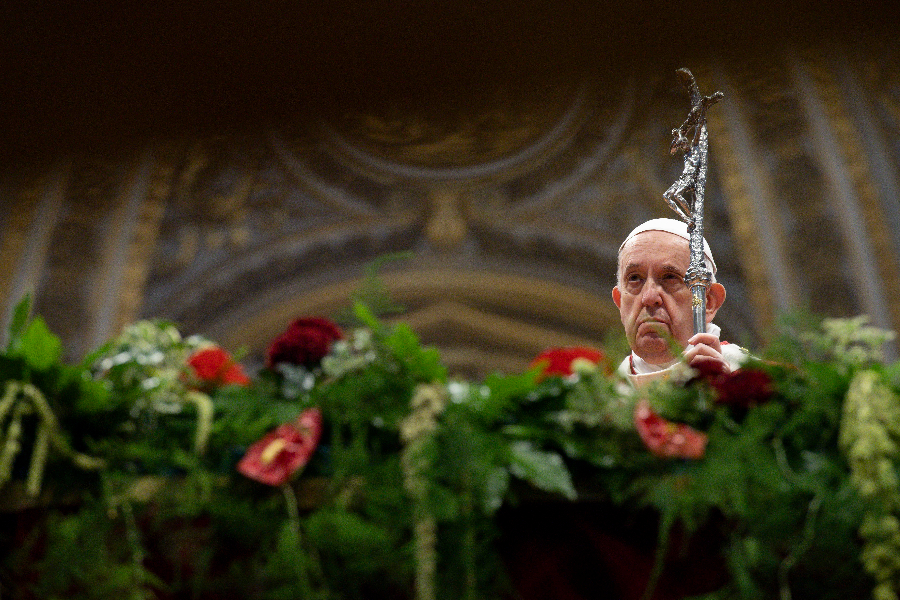
Vatican City, Jun 29, 2021 / 06:30 am (CNA).
In the largest Mass in St. Peter’s Basilica since the start of the pandemic, Pope Francis celebrated the Solemnity of Sts. Peter and Paul with a message that true freedom is found in Christ.
Speaking from the altar located above the relics of St. Peter, the pope proclaimed that Sts. Peter and Paul were “two great Apostles of the Gospel and two pillars of the Church.”
“Dear brothers and sisters, the Church looks to these two giants of faith and sees two Apostles who set free the power of the Gospel in our world, only because first they themselves had been set free by their encounter with Christ,” Pope Francis said in his homily on June 29.
“Peter and Paul bequeath to us the image of … a Church set free and capable of offering the world the freedom that the world by itself cannot give: freedom from sin and death, from resignation, and from the sense of injustice and the loss of hope that dehumanizes the lives of the women and men of our time,” he said.
Pope Francis explained that both Peter and Paul experienced the liberating power of Christ before being entrusted with the mission to proclaim the Gospel.
“Let us take a closer look at these two witnesses of faith,” he said. “At the heart of their story is not their own gifts and abilities, but the encounter with Christ that changed their lives. They experienced a love that healed them and set them free. They then became apostles and ministers of freedom for others.”
“Peter, the fisherman from Galilee, was set free above all from his sense of inadequacy and his bitter experience of failure, thanks to the unconditional love of Jesus,” the pope explained, while Paul, then known as Saul, “was set free from the most oppressive form of slavery, which is slavery to self.”
After converting from his life as “a cruel persecutor of Christians,” Paul came to “realize that ‘God chose what is weak in the world to shame the strong’ (1 Corinthians 1:27), that we can do all things through him who strengthens us, and that nothing can ever separate us from his love,” the pope said, quoting Paul’s letters.
At the beginning of the livestreamed Mass, the pope blessed the “palliums,” the white woolen vestments adorned with six black silk crosses that are given to each new metropolitan archbishop. These were made with wool woven by the Benedictine Sisters of St. Cecilia in Trastevere, Rome, and were kept near the tomb of St. Peter.
The tradition of the pallium dates back to at least the fifth century. Metropolitan archbishops wear the pallium as a symbol of authority and unity with the Holy See. It serves as a sign of the metropolitan archbishop’s jurisdiction in his own diocese, as well as the other particular dioceses within his ecclesiastical province.
The new metropolitan archbishops of Manila, Dublin, Lyon, Seville, Naples, and Hyderabad are among the 34 archbishops who will receive the pallia blessed today by the pope.
Pope Francis said that the pallium is a “sign of unity with Peter” which recalls “the mission of the shepherd who gives his life for the flock. It is in giving his life that the shepherd, himself set free, becomes a means of bringing freedom to his brothers and sisters.”
The pope also prayed before the basilica’s 14th bronze statue of St. Peter, which was adorned for the feast with a papal tiara and a red cope.
In his homily, the pope said: “We too have been touched by the Lord; we too have been set free. Yet we need to be set free time and time again, for only a free Church is a credible Church.”
“Like Peter, we are called to be set free from a sense of failure before our occasionally disastrous fishing. To be set free from the fear that paralyzes us, makes us seek refuge in our own securities, and robs us of the courage of prophecy,” he said.

“Like Paul, we are called to be set free from hypocritical outward show, free from the temptation to present ourselves with worldly power rather than with the weakness that makes space for God, free from a religiosity that makes us rigid and inflexible; free from dubious associations with power and from the fear of being misunderstood and attacked.”
A delegation of the Ecumenical Patriarchate of Constantinople was present at the Mass. The Orthodox Metropolitan Emmanuel of Chalcedon headed the delegation sent by Ecumenical Patriarch Bartholomew.
“Your welcome presence is a precious sign of unity on our journey of freedom from the distances that scandalously separate believers in Christ,” the pope told the Orthodox delegation in the basilica.

Together with the Orthodox metropolitan, Pope Francis descended to the crypt located beneath the high altar to venerate the relics of St. Peter at the end of the Mass.
“We pray for you, for all Pastors, for the Church and for all of us: that, set free by Christ, we may be apostles of freedom throughout the world,” Pope Francis said.
If you value the news and views Catholic World Report provides, please consider donating to support our efforts. Your contribution will help us continue to make CWR available to all readers worldwide for free, without a subscription. Thank you for your generosity!
Click here for more information on donating to CWR. Click here to sign up for our newsletter.











Leave a Reply